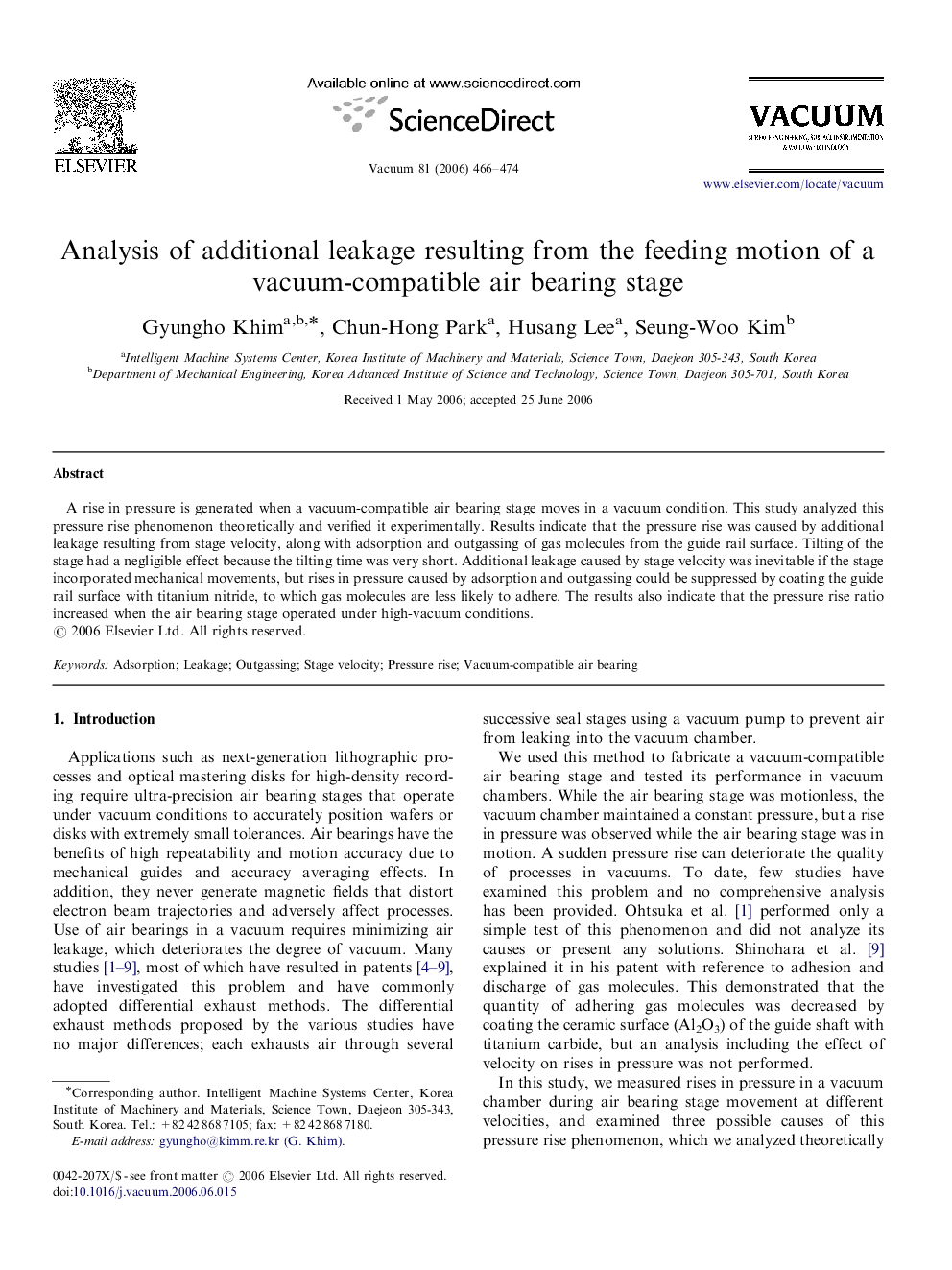| Article ID | Journal | Published Year | Pages | File Type |
|---|---|---|---|---|
| 1690679 | Vacuum | 2006 | 9 Pages |
A rise in pressure is generated when a vacuum-compatible air bearing stage moves in a vacuum condition. This study analyzed this pressure rise phenomenon theoretically and verified it experimentally. Results indicate that the pressure rise was caused by additional leakage resulting from stage velocity, along with adsorption and outgassing of gas molecules from the guide rail surface. Tilting of the stage had a negligible effect because the tilting time was very short. Additional leakage caused by stage velocity was inevitable if the stage incorporated mechanical movements, but rises in pressure caused by adsorption and outgassing could be suppressed by coating the guide rail surface with titanium nitride, to which gas molecules are less likely to adhere. The results also indicate that the pressure rise ratio increased when the air bearing stage operated under high-vacuum conditions.
